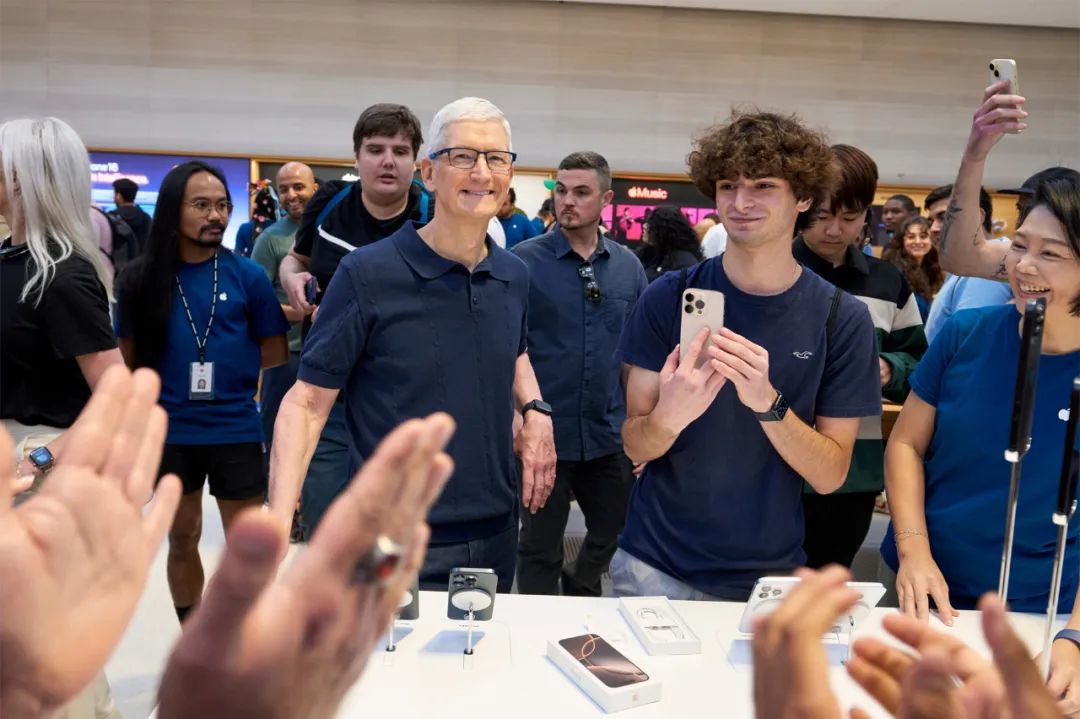iPhone 16 Generates $44.5 Billion in Revenue, Yet Apple Grapples with AI Challenges
![]() 08/04 2025
08/04 2025
![]() 457
457
By Yang Jianyong
For the fiscal third quarter ending June 28, 2025, Apple delivered remarkable results, achieving a total revenue of $94.04 billion, marking a 10% year-over-year increase, and a net profit of $23.434 billion, up 9% from the previous year.
The iPhone business stood out, with a 13.5% year-over-year growth, generating revenue of $44.58 billion. For the nine months ending June 28, 2025, total iPhone revenue amounted to $160.56 billion.

This robust growth was primarily fueled by robust sales of the iPhone 16 series and continued expansion into emerging markets, reaffirming Apple's dominance in the premium smartphone market.
Apple CEO Tim Cook proudly announced record revenue for the June quarter, noting double-digit growth across iPhone, Mac, and services in all global regions.
Crucially, Apple observed positive signals in the Greater China market, with fiscal Q3 2025 revenue reaching $15.369 billion, up 4% year-over-year, successfully reversing the decline seen in the previous two quarters.
Apple's recovery in Greater China significantly contributed to global growth, primarily driven by the iPhone 16 series' strong performance in the premium phone market and significant price cuts during the 618 shopping festival, which aligned with national subsidies, stimulating phone upgrade demand. According to Canalys data, iPhone shipments in China reached 10.1 million units in Q2 2025, a 4% year-over-year increase.
Notably, after Steve Jobs laid the foundation for Apple's innovation myth, Tim Cook has spent the past 14 years crafting a vastly different business legend. Despite being labeled as "lacking disruptive innovation," the iPhone has continued to expand with remarkable commercial resilience, firmly holding its ground in the global premium smartphone market, primarily due to the establishment of a competitive barrier stronger than technological innovation alone.
While tech media fixate on changes in the notch design, Cook has transformed Apple into one of the world's most profitable companies. Leveraging the iPhone's global money-making prowess, Apple has amassed huge profits, not only becoming one of the world's most profitable tech companies but also witnessing its market capitalization soar.
Under Cook's leadership, Apple's market capitalization has surged from $1 trillion to $3 trillion and briefly approached $4 trillion, with a peak market cap exceeding $3.75 trillion. It's undeniable that Cook is a seasoned businessman. This also underscores that in mature markets, operational efficiency is the true moat.
Despite Apple's unprecedented commercial success with steady iPhone demand, it trails in artificial intelligence. Its overall lagging AI strategy is eroding its technological discourse power, positioning it as a follower in the generative AI era.
It's worth noting that since Apple introduced Siri to the iPhone in 2011, its ability to converse like a "human" pioneered a new mode of human-computer interaction, shocking the world. However, over the past decade, Siri's functional enhancements have been limited. Despite launching the first generative AI large model, Apple Intelligence, it still lags far behind models like OpenAI's ChatGPT, and Siri's upgrade has been postponed until next year, indicating Apple's lagging behind in the generative AI wave.
In the era of generative AI, Apple lags in large model technology, having been overtaken by NVIDIA and Microsoft. Especially in the generative AI era, NVIDIA has emerged as the world's most valuable stock, with a market capitalization of $4.24 trillion, $1.2 trillion higher than Apple, due to the unprecedented global demand for its AI chips.
As NVIDIA builds a $4 trillion market capitalization fortress with AI chips, Apple, as the pioneer in human-computer interaction, can be described as "arriving early but missing the party," still stuck in the voice command logic of a decade ago. It must be acknowledged that in the generative AI era, Apple's business empire's moat demands more than just a supply chain myth; it necessitates a technological race.
At this pivotal moment where the tech industry is accelerating its transition to AI, Apple faces a critical choice: continue to be a profit harvester in the smartphone market or venture into the future to become a rulemaker in the AI era. For Cook, the challenge is not just skepticism about innovation but a life-or-death decision on AI.






